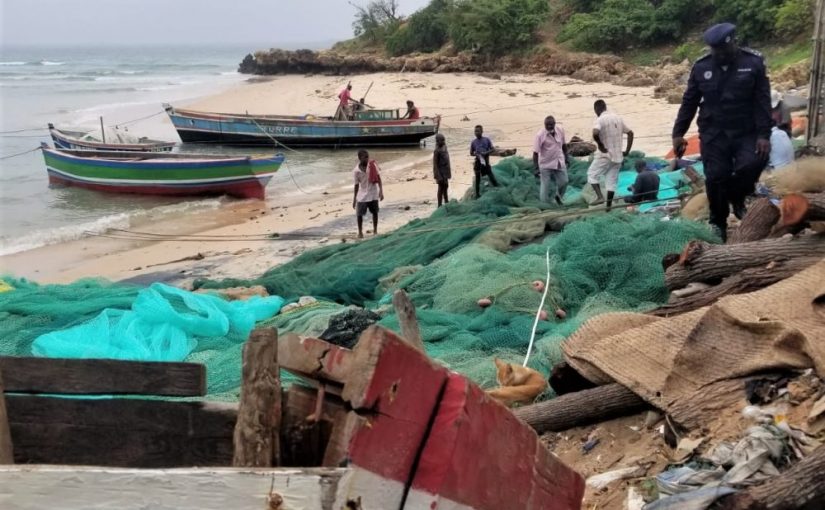Mozambique: State has not assumed central bank currency fluctuations since 2005
Mozambique; Ministry of Fisheries imposes over two million meticais in fines

Photo: Noticias
The Mozambican Ministry of the Sea, Inland Waters and Fisheries has imposed fines of over two million meticais (about 38,000 US dollars, at the current exchange rate) on fishermen across the country, who were caught violating the current closed fishing season, which runs from November until the end of March.
Delivering the mid-term assessment of 100 days of the closed season for the fishing of mangrove crabs and surface water prawns, the Ministry’s National Director of Operations, Leonid Chimarizene, on Friday in Maputo told reporters that the inspectors have also seized the unlawfully fished catch as well as destroying the harmful fishing gear they used.
“Between 1 November and 10 February, 466 inspection missions toured 688 fishing centres, and inspected 4,139 sets of fishing gear. Of these, 578 were seized and 456 destroyed, as the net mesh did not comply with the standards,” Chimarizene said.
The inspection seized 1.3 tonnes of crabs, but as the species can live for considerable amounts of time outside its natural habitat; the authorities returned a great many of the crustaceans back to where they belong. The inspection seized 12.7 tonnes of prawns, of which seven tonnes have been auctioned so far.
Throughout the period, besides crabs and prawns, there were 23 tonnes of other fishery produce that were seized and sold at public auction. The fishermen responsible were fined.
The Ministry, which also seized 18 vehicles in Sofala; Zambezia and Nampula and six fishing boats, noted with great concern the increasing use of the Indian manufactured motor tricycle, commonly known as “txopela”, used to ferry the catch from one place to another in the dead of night.
“The fishermen use the txopelas to transport the catch but we have fortunately been able to foil several attempts made in the middle of the night,” said Chimarizene, adding that the sector will soon review the legislation to hold accountable not only the fisherman breaking the laws, but also the transporter and the buyer.
Chimarizene highlighted that there are 450,000 artisanal fishermen operating along the country’s coastline, the majority of whom are using harmful fishing gear.












Leave a Reply
Be the First to Comment!
You must be logged in to post a comment.
You must be logged in to post a comment.